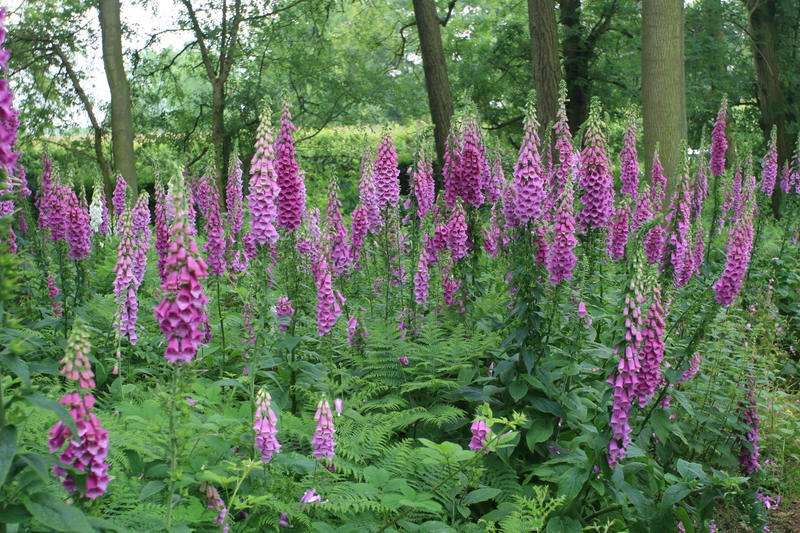Elevate Your Backyard's Peace with Stunning Zen Garden Designs
Posted on 22/09/2025
Elevate Your Backyard's Peace with Stunning Zen Garden Designs
Are you searching for sanctuary in your own backyard? Transforming your outdoor space into a tranquil oasis is not only possible, but within your reach. The secret lies in the timeless beauty and mindful simplicity of Zen garden designs. In this comprehensive guide, we'll explore how you can elevate your backyard's peace with stunning Zen-inspired landscaping--from the core principles of Japanese Zen gardens to step-by-step design tips for creating your own serene retreat at home.
What is a Zen Garden? A Harmonious Escape
Zen gardens, also known as karesansui or Japanese dry landscape gardens, originated in the ancient Buddhist temples of Japan. These tranquil spaces are meticulously designed to promote peace, contemplation, and mindfulness. Characterized by carefully placed rocks, carefully raked gravel or sand, minimalistic plantings, and artistic asymmetry, Zen-inspired gardens invite you to escape the noise of daily life and focus on the beauty of simplicity.
Key Elements of Zen Garden Design
- Rocks and Stones: Symbolize mountains and islands, forming the backbone of the landscape.
- Gravel or Sand: Raked in patterns to evoke water flow and instill calmness.
- Minimalistic Greenery: Moss, ferns, bamboo, and evergreens add lush yet subtle accents.
- Water Features: Ponds, streams, or even implied streams with gravel enhance the sense of tranquility.
- Natural Boundaries: Fences, hedges, or screens provide privacy and seclusion.
- Seating and Pathways: Invite mindful walking or meditative sitting.

Why a Zen Garden? The Pursuit of Backyard Serenity
Bringing the peaceful spirit of a Zen garden into your backyard goes beyond visual splendor. A well-crafted Zen-inspired landscape can transform your home life in many ways:
- Stress Relief: The calming textures and simple layouts soothe the mind, reducing anxiety and encouraging mindfulness.
- Private Sanctuary: Zen gardens offer privacy, fostering an environment for meditation, reading, or quiet conversation.
- Low Maintenance: With fewer plantings and waterwise features, maintenance time is minimal compared to traditional gardens.
- Year-Round Appeal: Strategic use of evergreens and stones ensures beauty in every season.
- Property Value Boost: Unique, well-designed outdoor spaces can significantly raise your home's curb appeal.
Principles of Zen Garden Design: Backbone of Tranquility
Before diving into your project, it's essential to understand the guiding principles behind authentic Zen garden designs. These time-honored rules help achieve harmony, natural flow, and understated elegance:
1. Simplicity (Kanso)
Zen gardens shun clutter. Every element serves a purpose--be it an artfully placed stone or a solitary plant. Minimalism is key; resist the urge to overfill your space.
2. Naturalness (Shizen)
Embrace the imperfect beauty of nature. Use organic shapes, weathered stones, and asymmetrical arrangements to mimic the wild, yet controlled, chaos of the natural world.
3. Subtlety (Yugen)
Subtle features such as a mossy rock, a hidden pathway, or a trickling fountain invite closer inspection and contemplation. The aura of mystery and suggestion is central.
4. Balance and Harmony (Fukinsei)
Zen landscapes are carefully balanced, yet never strictly symmetrical. Use odd numbers of rocks or plantings, and stagger visual weight to create natural but pleasing arrangement.
5. Symbolism (Shinzenbi)
Every element, from rocks to raked patterns, carries symbolic meaning--mountains, islands, flowing water. Incorporate symbolism to evoke both tranquility and philosophical depth.
Designing Your Backyard Zen Garden: A Step-By-Step Guide
1. Select the Right Location
Choose a quiet corner, preferably away from the busiest parts of your yard. Screen the area with hedges or bamboo for privacy and an immersive Zen feel.
2. Plan the Layout for Serenity
- Sketch Your Space: Draw your ideas to scale. Mark where stones, sand, plants, and features will go.
- Orient for Sun and Shade: Place seating in dappled light and mossy areas in the shade for optimal growth.
- Allow Room: Maintain open space for gravel or sand "seas," letting the mind (and eyes) wander freely.
3. Add Hard Landscaping Elements
- Rocks: Select focal boulders for visual anchor points. Arrange in groups of odd numbers, half-bury for natural effect.
- Gravel & Sand: Spread evenly and rake into calm, flowing patterns. Maintain with light raking for a pristine look.
4. Soft Landscaping for Subtle Greenery
- Moss: Fills spaces between stones and adds serenity.
- Bamboo: Offers screening and soothing rustle in the breeze.
- Dwarf Pines, Ferns, Japanese Maple: Add height, color, and seasonal variety.
5. Water and Fire Elements
- Koi Ponds: Traditional and mesmerizing.
- Mini Waterfalls: For meditation through the sound of moving water.
- Stone Basins (Tsukubai): For ritual cleansing and visual interest.
- Fire Bowls: For warmth and evening ambiance.
6. Pathways and Seating
- Stepping Stones: Lead through the garden, encouraging slow, mindful movement.
- Stone Benches, Teahouses, or Pavilion: Provide restful spots for reflection and pause.
Creative Zen Garden Design Ideas
Classic Courtyard Zen Garden
Transform a small urban yard or patio into a peaceful haven with gravel, a few stately stones, and a low-maintenance bamboo screen. Add a simple bench for a private escape.
Modern Minimalist Zen Space
For contemporary homes, use crisp lines, monochrome gravels, geometric boulders, and sleek water troughs for an urban take on tranquility. Metal or concrete benches offer modern seating.
Woodland Zen Retreat
In shady yards, incorporate lush moss, ferns, Japanese maples, and winding flagstone paths. A rustic bamboo fence or gate completes the secluded, meditative vibe.
Pocket Zen Garden
Short on space? Even a balcony or porch can host a mini Zen garden. Use shallow containers for sand, stones, and tiny plants. Create a spot for tabletop meditation.
Zen Water Feature Garden
Focus on a central water element, like a koi pond or a fountain surrounded by smooth pebbles. Frame it with evergreens and ornamental grasses for all-season serenity.
Maintaining Your Zen Garden: Timeless Tranquility
- Rake Sand and Gravel: Maintain flowing patterns and remove debris for a fresh look.
- Weed Carefully: Keep surfaces pristine to preserve the garden's meditative quality.
- Prune Plants Gently: Encourage natural forms and prevent overgrowth.
- Clean Water Features: Prevent algae with regular cleaning for clarity and health.
- Refresh Mulch or Moss: Add new materials seasonally for vibrancy.
Tips for Personalizing Your Zen-Inspired Outdoor Sanctuary
- Include Personal Touches: Subtle statues, engraved stones, or wind chimes can bring unique meaning.
- Embrace Nighttime Ambiance: Soft lanterns or hidden LEDs highlight focal points after dark.
- Practice Mindfulness Everyday: Use your Zen space for morning meditation, yoga, or quiet tea ceremonies.
Zen Garden Mistakes to Avoid
- Overcrowding: Too many plants or ornaments disrupt peace. Stick to the "less is more" ethos of Zen design.
- Ignoring Scale: Choose rocks and elements that fit the size of your garden. Oversized features can overpower small spaces.
- Unnatural Placement: Half-bury rocks and let moss spread organically to avoid artificial layouts.
- Poor Drainage: Ensure proper grading and drainage to prevent waterlogged areas and maintain sand patterns.
Inspirational Zen Garden Plants
- Moss: For a velvety, evergreen groundcover.
- Japanese Black Pine: Iconic tree for architectural form.
- Bamboo: Screening, texture, and soothing rustle.
- Acorus (Japanese Sweet Flag): Subtle grass for water edges.
- Ferns: For shade and lushness.
- Azaleas: Burst of spring color.
- Japanese Maple: Vibrant foliage, especially in autumn.

Frequently Asked Questions About Zen Garden Design
Can I make a Zen garden in a small backyard?
Absolutely! Zen gardens scale beautifully. Even a 5x5 foot corner with raked gravel, a couple of rocks, and a bamboo screen can create profound peace.
What materials do I need for a DIY Zen garden?
- River rocks or boulders
- Sand or gravel
- Moss or compact greenery
- Bamboo or screening plants
- Stone or wooden bench
- Optional: water basin or small fountain
Do Zen gardens require a lot of maintenance?
No. With minimal plantings and no turf grass, maintenance mostly involves raking, light pruning, and occasional weeding.
Final Thoughts: Elevate Your Sanctuary with Zen-Inspired Beauty
In today's fast-paced world, the backyard Zen garden is more than just a landscaping trend--it's a true retreat for body, mind, and spirit. Through stunning Zen garden designs and thoughtful placement of natural elements, you can elevate your backyard's peace for years to come.
Whether you dream of a sweeping gravel landscape, a mossy woodland nook, or a modern, minimalist courtyard, the guiding principles of Zen--simplicity, subtlety, and harmony--will inspire you. Commit to mindfulness and watch your garden become a living invitation to calm, contemplation, and beauty. Start your backyard Zen transformation today and discover the tranquility waiting just outside your door!
Latest Posts
Innovative Approaches to Minimize Garden Storm Damage
Safeguarding Your Plants from Extreme Wind Conditions
Gardener's Toolbox: Essential Tools for the Avid Enthusiast
Elevate Your Backyard's Peace with Stunning Zen Garden Designs

